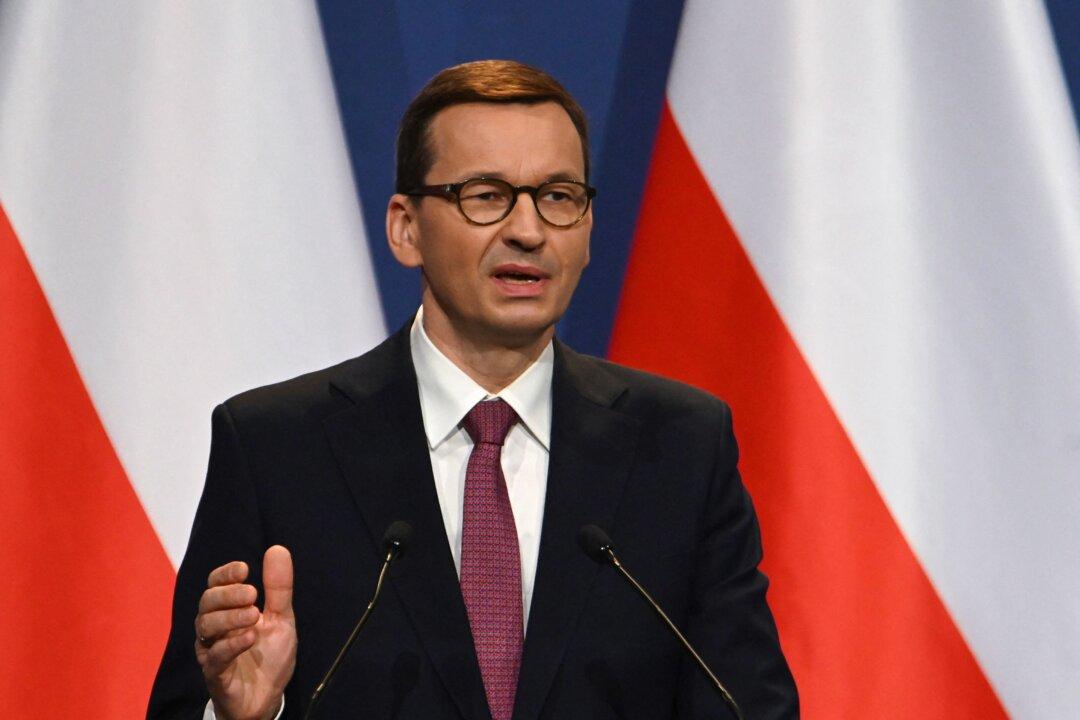Poland is pressing ahead with plans for a complete embargo on Russian coal, gas, and oil imports by the end of 2022, while calling for a European Union-level tax on Russian fossil fuels, all in a bid to cut the flow of money to Russia’s military machine.
Polish Prime Minister Mateusz Morawiecki told a press conference near Warsaw on March 30 that Poland will put forward “the most radical” plan in Europe to “walk away” from Russian fossil fuels.





